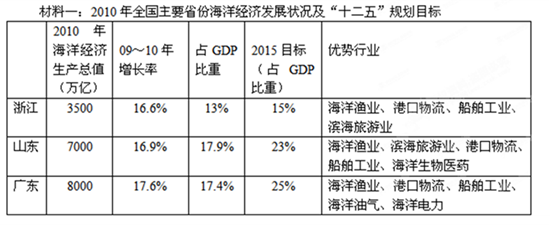Passage Two
| "With two friends I started a journey to Greece, the most horrendous of all journeys. It had all the details of a nightmare: barefoot walking in rough roads, risking death in the dark, police dogs hunting us, drinking water from the rain pools in the road and a rude awakening at gunpoint from the police under a bridge. My parents were terrified and decided that it would be better to pay someone to hide me in the back of a car." This 16-year-old Albanian high-school drop-out, desperate to leave his impoverished country for the nirvana of clearing tables in an Athens restaurant, might equally well have been a Mexican heading for Texas or an Algerian youngster sneaking into France. He had the misfortune to be born on the wrong side of a line that now divides the world: the line between those whose passports allow them to move and settle reasonably freely across the richer world’s borders, and those who can do so only hidden in the back of a truck, and with forged papers. Tearing down that divide would be one of the fastest ways to boost global economic growth. The gap between labour’s rewards in the poor world and the rich, even for something as menial as clearing tables, dwarfs the gap between the prices of traded goods from different parts of the world.The potential gains from liberalizing migration therefore dwarf those from removing barriers to world trade. But those gains can be made only at great political cost. Countries rarely welcome strangers into their midst. Everywhere, international migration has shot up the list of political concerns. The horror of September 11thhas toughened America’s approach to immigrants, especially students from Muslim countries, and blocked the agreement being negotiated with Mexico. In Europe, the far right has flourished in elections in Austria, Denmark and the Netherlands. Although many more immigrants arrive legally than hidden in trucks or boats, voters fret that governments have lost control of who enters their country. The result has been a string of measures to try to tighten and enforce immigration rules. But however much governments clamp down, both immigration and immigrants are here to stay. Powerful economic forces are at work. It is impossible to separate the globalisation of trade and capital from the global movement of people. Borders will leak; companies will want to be able to move staff; and liberal democracies will balk at introducing the draconian measures required to make controls truly watertight. If the European Union admits ten new members, it will eventually need to accept not just their goods but their workers too. Technology also aids migration. The fall in transport costs has made it cheaper to risk a trip, and cheap international telephone calls allow Bulgarians in Spain to tip off their cousins back home that there are fruit-picking jobs available. The United States shares a long border with a developing country; Europe is a bus ride from the former Soviet block and a boat-ride across the Mediterranean from the world’s poorest continent. The rich economies create millions of jobs that the underemployed young in the poor world willingly fill. So demand and supply will constantly conspire to undermine even the most determined restrictions on immigration. |
It is difficult to prevent migration of people because of
A.rich countries’ lack of tightening measures
B.governments’ lost of control of who to let in
C.globalisation of trade and capital
D.expansion of the European Union
参考答案:C
解析:细节题。根据第五段,政府采取了一系列措施试图加紧并加强移民法规,因此A不对;不管政府如何强行限制,移民现象和移民都屡禁不止的主要原因是强大的经济力量在起作用,也就是说贸易和资本的全球化与人的全球化是密不可分的,故C是对的。B只是人们担心的问题,并不是导致移民问题难以控制的主要原因;D是全球化的一个例子。


 港口物流、船舶工业是传统产业,海水综合利用、海洋新能源、海洋生物医药、深海资源勘探开发等新兴海洋产业在我国目前还处于边缘状态。我国海洋产业内部结构也存在粗放型产品多、高附加值产品少现象。海洋科技对海洋经济的贡献率只有30%左右,而一些发达国家已达70%-80%。
港口物流、船舶工业是传统产业,海水综合利用、海洋新能源、海洋生物医药、深海资源勘探开发等新兴海洋产业在我国目前还处于边缘状态。我国海洋产业内部结构也存在粗放型产品多、高附加值产品少现象。海洋科技对海洋经济的贡献率只有30%左右,而一些发达国家已达70%-80%。 、宽领域、深层次的开发,就一定能使大海成为浙江经济 “扬帆远航” 的“蓝色引擎”。
、宽领域、深层次的开发,就一定能使大海成为浙江经济 “扬帆远航” 的“蓝色引擎”。 、中企业成长起来的,没有天生的大企业;其次,大企业起龙头骨干作用,其他中小企业跟随、不可缺少,相互不可替代;再次,一些发达的国家,它们在小企业的问题上仍然也有着很值得学习的地方,大企业可以“大而强”,小企业也可以“小而强”、“小而精”,我们自己也有这样的一些小的企业搞的很好,这值得我们思考。
、中企业成长起来的,没有天生的大企业;其次,大企业起龙头骨干作用,其他中小企业跟随、不可缺少,相互不可替代;再次,一些发达的国家,它们在小企业的问题上仍然也有着很值得学习的地方,大企业可以“大而强”,小企业也可以“小而强”、“小而精”,我们自己也有这样的一些小的企业搞的很好,这值得我们思考。 表描述浙江海洋经济发展总体状况。
表描述浙江海洋经济发展总体状况。